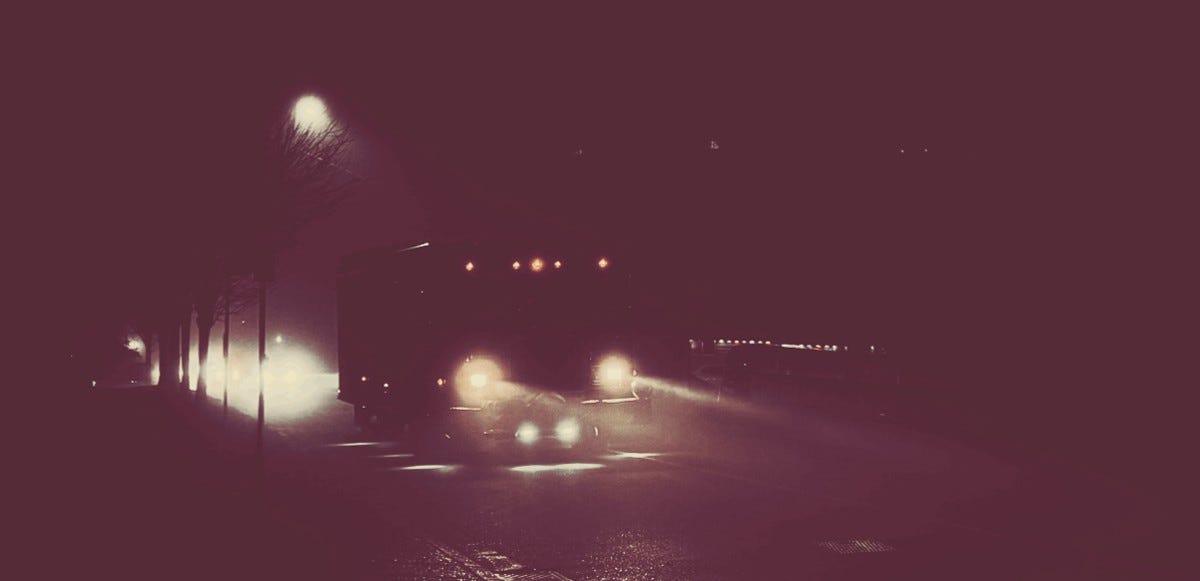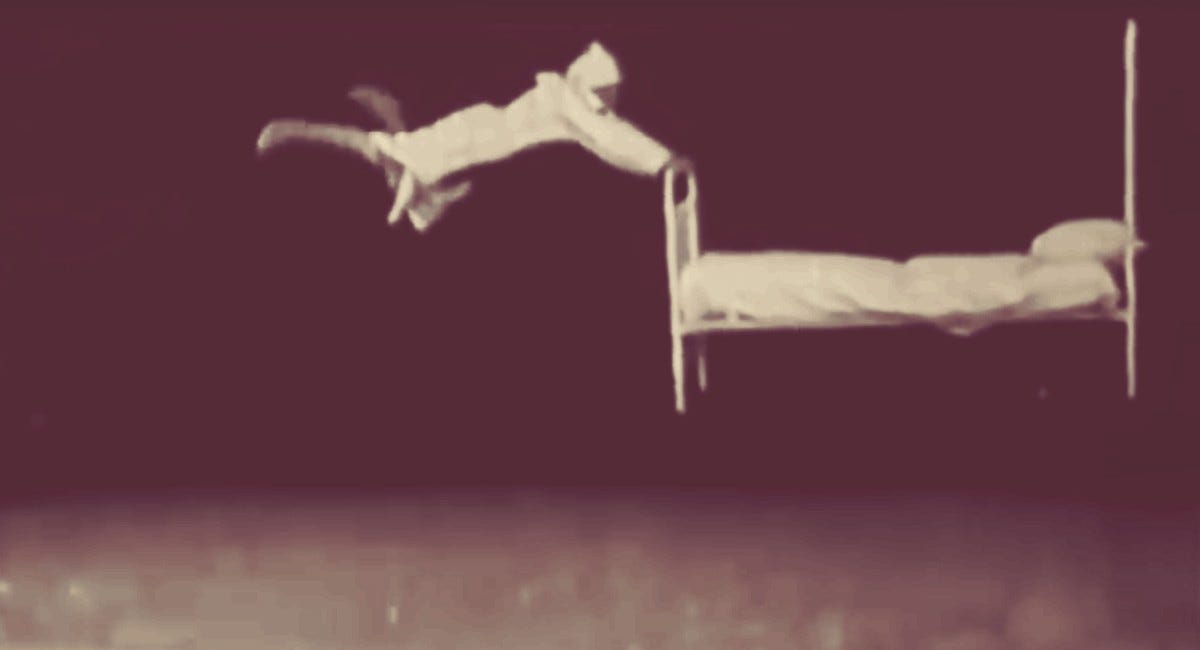Remembrance of Things Past
Three Bagatelles in search of lost time: The Childhood Friend I Don’t Remember ✦ Night Bus to Bombay ✧ All That Slipped Away
I often say of my writing that nothing in it has happened. And yet all of it is true. There’s rarely any point, for me, in recounting things I’ve already experienced. The point is to write what I’ve almost experienced, to extend a line of thought, to intensify a feeling, turn it up to its highest setting, and for at least a few lines inhabit one of those branching lives that never had the chance to unfold. Writing is my invisible branches — or better still: the invisible roots.
The same holds true for my literary diary. It rarely contains more than fragments of my life: a hidden impulse, an unwept tear, the shimmer in a child’s eye. That doesn’t make it any less serious. Because sometimes, something happens that makes you question everything, and see everything else. The veil of the everyday falls away, and the whole mechanism is suddenly exposed, every cog and screw in place. That’s what I’ve spent the weekend doing. Seeing, before I (or whoever it might be?) raise the veil again and carry on as if nothing ever ends.
Because of the urgency of the present, I chose today to trawl my memory and retrieve three bagatelles, which I now share with you. Whether they happened or not, I can’t say — but they are all entirely true.
Welcome away ꩜
Jörgen Löwenfeldt
✦ The Childhood Friend I Don’t Remember ✧
He is the childhood friend I don’t remember.
That he’s my childhood friend has been explained to me, that we were children at the same time and that we met. He visited us at the house, we ran into each other on an island off Möja, and our mothers worked together. All of these encounters have been described to me in detail, but I remember nothing. Not a face, not a feeling. Nothing. It’s as if a meticulous censor has crept into my inner archive and wiped all the files. In the childhood friend, however, there exists a mirrored backup: every mood and scent, the secret hiding places beneath the stairs, the dynamic within my family and, of course — me.
The first time I meet him, I’m an adult. By then, he has already explained, through text, that we know each other from before, after which he recounts things I don’t recognise, but which my mother confirms are true.
Oh, Erik! she says, a warmth lighting up her expression, and she describes his rosy-cheeked mother who worked at the school and kept everyone in good spirits. The conspiracy thickens. Desperately I try to plant memories, thinking that if only I can get some tiny nerve cell to respond, perhaps an old, dormant network might spark back to life. However vividly the summery game on the rocks is described to me, or however gently I hear about his brother’s mild temperament — nothing.
We meet at Gunnarsson’s café, having been nudged together via social media and seemingly having a fair bit in common. Most things, it turns out, though I don’t realise that until later. When I meet him for the first time, he’s meeting me for perhaps the fourth or fifth or more. Where I’m forming a new acquaintance, he’s deepening an existing one that stretches back decades.
We sit across from each other, just a stone’s throw from our homes. There’s something familiar about him, not in appearance, but in expression. He gives off a warmth and an affectionate tone I associate with people I’ve known far longer. The conversation flows seamlessly, even though I talk more than he does. He’s at ease in the situation and seems genuinely interested — as though I’m laying out the pieces of a puzzle we share.
The following year, we don’t see each other. Perhaps we’re the kind of people who don’t need to meet that often. He has things going on: becomes a father, leaves Stockholm for Öland, opens a burger restaurant and writes books about birdwatching. I follow it all from afar, through my phone. I picture peace and love in those beautiful rooms, not with envy or resentment — partly because I’m not prone to such things, but also because we’re friends from way back. Just one I don’t remember.
One autumn, he invites me down. I can stay with his family for a few days, he says, justifying it by saying he’s working on a novel and would like to discuss the craft with a writer. He asks me, which in itself isn’t surprising (he’s expressed admiration for my writing for years, at times with a disarming tenderness). It’s as if I represent something in him, like a yet unplayed symphony. That what I do somehow resonates with his life as well.
I’m still waiting for the great depiction of Saltsjö-Duvnäs, he occasionally remarks about our childhood neighbourhood. He’s probably the one who ought to write it.
✦ Night Bus to Bombay ✧
Night in India, somewhere between Goa and Bombay. An overnight bus, people packed into sleeping berths like logs. The journey itself takes place in darkness. It isn’t meant to be experienced. Someone else walks the tightrope while we rest, eyes shut, on their shoulders. Ascents and narrow bridges, sheer drops and brittle road surfaces. Encounters where the bus must reverse. Occasionally, a toilet stop along a stretch of nothing. Everyone out into the darkness, maybe everyone back on board afterwards, maybe not. No one keeps count.
The hotel owner’s son had looked both alarmed and amused when he found out we’d been booked onto a bus rather than a train — as if it were news to him that there even was a road, a bit like being directed to a climbing wall instead of a cable car.
I open my eyes. Black night, with a dim light here and there in the berths. Outside, branches brushing the bus with a rustle. Everything has been so stressful (tickets and Globus offices and price tags and bus stops) that it’s only now I realise we’re surrounded by a hundred sweating bodies. They are all men, roughly the same age, with roughly the same background, and future. From my blue-eyed tourist perspective, they form a mass. All Indians seem friendly, but it’s night, and the world shifts. Desire becomes need.
Next to me, my girlfriend — the only woman on board. How young she is, here. And me, even younger. I know nothing, but believe so much. She’s asleep, will wake up in Bombay, the journey reduced to a blur, the plan just to close our eyes and hope everything turns out all right, because everything up until now somehow has. In the morning, we’ll meet our couchsurfing contact at the station and carry on with life. A few years later, she gives birth to my children, the journey folded into all the other dreams we don’t remember. But I can’t forget, because I opened my eyes in the dark.
Most of the passengers are asleep, but not all. A few men are playing cards by the light of a head torch. In one corner, others sip rum from a flask and speak in low, almost conspiratorial tones. Opposite us, a pair of eyes staring straight at me, bright as a cat’s in the night. He whispers something I remember only in this memory. He says:
I’d never dream of sleeping in a place like this. I know too much, about others, or about myself. I watched you. For hours. I made plans for how I’d carry out my work, but never got an opening. You were too close to the driver. I had another chance later, with some Germans. That went better, for me.
I look him in the eye, now invisible myself, since I’ve slipped away from the actual event into its memory, and I say: So we finally meet. I’ve read about people like you in the papers, small articles about what’s happened to people like us, and I’ve thought of you, or the person you could’ve been, but you never stepped forward. Maybe we were saved by the crowd?
He says: Or perhaps fate rolled the dice.
Then I return to sleep, let my gaze go dim, the road lull me into a treacherously safe slumber — as if I’m still in the womb, on the run. And you sleep, just sleep. Just sleep.
✦ All That Slipped Away ✧
Everyone else has written something. I need to as well. They read their texts aloud. About different rooms from childhood. How they remember double curtains, the creak of a lift, and Polish bedtime stories. The writing course tutor has praised each one. There’s something worth highlighting in almost every memory. But I remember nothing. My literary piece reads like a manual. The room has walls and a ceiling but no furniture; the floor may be cork or carpeted. Everything is blank.
A crack of light slides in from the interior door. It travels in my direction. Am I meant to remember this, or is it an illusion? I go to close it. The ceiling begins at that very moment to press downward, without violence. A natural lowering caused by my action. Perhaps that’s how things always worked in my room. Soon I have to crouch, then lie flat, and then the ceiling begins to rise again, but I remain lying there.
Voices can be heard from outside. Thuds on the stairs. Perhaps someone can tell me what it is I’m looking at. At the very least, the colour of the wallpaper. Not even to remember that. What is it? I have no reason not to recall this. There’s no trauma. Nothing repressed. I simply don’t remember, it’s no big deal. It’s not like I was sexually abused or beaten. I had a perfectly ordinary childhood. Despite the invasion. That didn’t affect me.
As I stand up, I notice the chestnut-coloured planks across the floor, like in a ship’s cabin. There’s also a trace of asbestos in the air (don’t ask how I know, I don’t understand it myself, but that’s how it is, in any case). What else? asks the writing tutor. Go on. And I describe the bed’s placement against the wall, tightly along the long side, because I’m afraid of falling out and drowning. Drowning? asks the tutor. Yes, I can’t swim, I try to explain. Could you go and lie down there, so we can see what happens? he asks.
I wander over and pull aside the crocheted bedspread, lie down fully clothed and shut my eyes. Quite nice to get a bit of rest at last, after all that writing. Well? he interrupts. What’s happening now? Already interrupted in my sleep, I say: This piece probably won’t come to anything. I don’t remember anything. Without warning I find it hard to speak — blood is running down my throat. Have I hit something, or has someone hit me? When I touch my nose, my fingers turn red. A realisation heavy as grief passes through my limbs, as I write all the things I do not remember.
Thank you for reading.
– Jörgen Löwenfeldt ✦ jorgenlowenfeldt.se ✧ bagatellerna.se ✦
This dispatch was sent to four hundred and five readers. If my writing resonated with you, consider sharing it with a friend who might feel the same, or leave a comment.
A warm thank you to the four sponsors of The Bagatelles: Billy, Björn, Mafalda and Tamara. Your belief in my work keeps me going, and as a paid subscriber you have access to all content, including my literary diary (currently open to all subscribers).
When I broke my brain
Almost five years ago, I broke my brain. It was a slow process with a violent end. Something gave way when both I and the world around me pushed too hard, and then I was gone—disappeared into a cocoon, waiting in the darkness for something unknown.











I started reading your first story, but I stopped midway.
I'm going to print them out - thanks to my university PC and printer. They must be savored on paper.
These pieces are captivating, Jorgen. I love the intro, how it prepares us for the intimate strangeness of what unfolds.